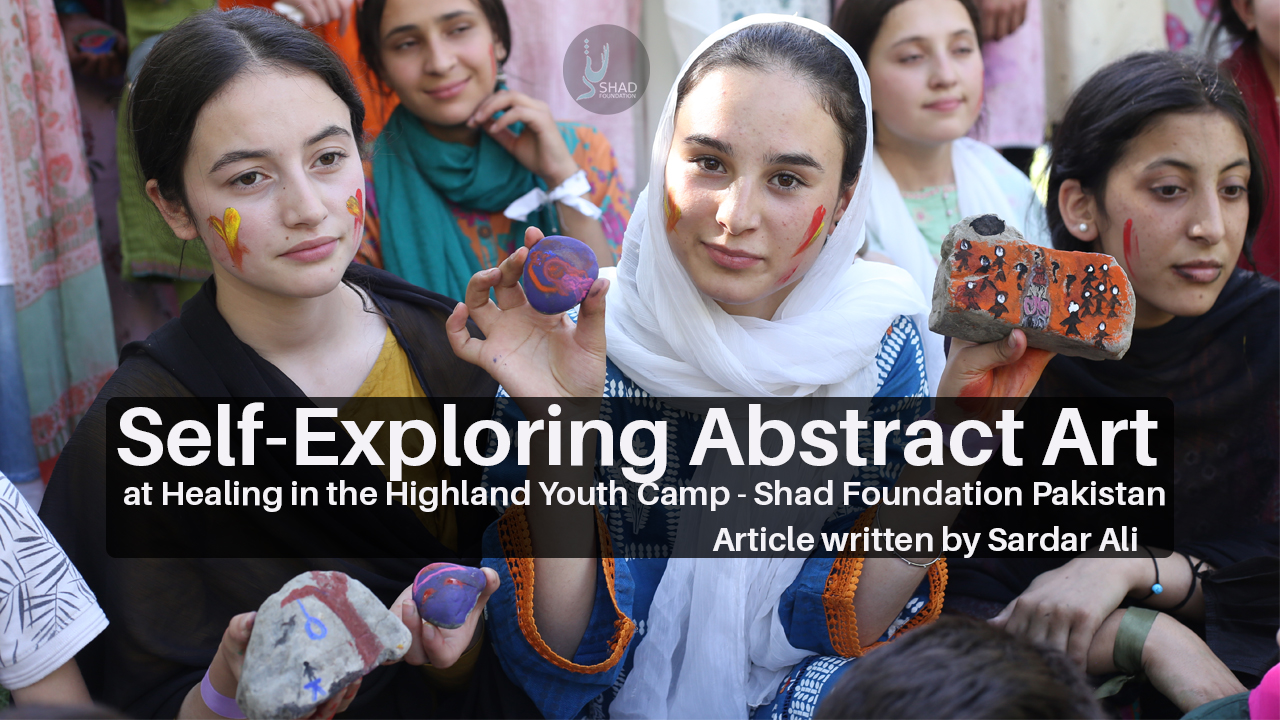A Festival of Sacrifice and Solidarity Eid al-Adha 2025, expected to be celebrated around June 7–8, 2025 (subject to...
An Unforgettable Journey at the Healing in the Highland Youth Camp
At Shad Foundation, we believe that true empowerment and personal growth come from self-exploration, self-expression, and connecting with one’s inner creativity. Our Healing in the Highland youth camp, held in the picturesque village of Chapali, Upper Chitral, provided a nurturing environment for young participants to explore these aspects of themselves through a unique activity—self-exploring abstract art.
This blog post delves into the transformative power of abstract art, the impact it had on our youth camp participants, and the significance of incorporating such creative outlets in youth development initiatives.
Why Self-Exploring Abstract Art Matters
Art is often regarded as a mirror to the soul—a way of expressing feelings, thoughts, and ideas that words cannot convey. Abstract art, in particular, allows individuals to tap into their subconscious mind, expressing emotions through colors, shapes, and forms without the limitations of structured design. The freedom that abstract art offers makes it an ideal medium for self-exploration.
In the context of our youth camp, the focus on self-exploring abstract art served multiple purposes:
- Emotional Expression: Abstract art allowed participants to convey emotions they might not have been comfortable sharing verbally.
- Stress Relief and Relaxation: Engaging in creative activities like painting on stones helped the youth relax and enjoy the present moment, fostering a meditative, calming experience.
- Enhanced Self-Discovery: Through abstract art, participants explored their personalities, preferences, and perceptions of the world, gaining a deeper understanding of their own identity.
The camp was designed to promote holistic development, and abstract art played a central role in achieving that objective. For many young people, this was their first time using art as a means of self-exploration, and it was nothing short of transformative.
Setting the Scene: The Second Day of the Healing in the Highland Youth Camp
The morning of the second day of Healing in the Highland began with clear skies and a refreshing mountain breeze. Participants gathered outdoors, surrounded by the stunning landscape of Upper Chitral. This natural setting, with its calming ambiance and inspiring views, created the perfect environment for the day’s stone art activity.
Stones of various shapes and sizes were provided to the youth, along with an array of paints, brushes, and other art materials. The goal was not just to create “pretty” designs, but to embrace a journey of self-discovery. Our mentors encouraged the participants to let their imaginations flow freely, choosing colors, patterns, and shapes that spoke to their inner thoughts and feelings.
The participants eagerly set to work, each approaching the task with their unique perspective. For some, it was a journey into the unknown, an adventure in which they didn’t know what would emerge until the paintbrush touched the stone. For others, the abstract art activity became a way to express emotions they hadn’t fully understood before.
The Transformative Power of Self-Exploring Abstract Art
As the participants painted, they began to experience the true essence of self-exploring abstract art. For many, it was a form of release—an opportunity to pour out emotions that had been bottled up. Each brushstroke became an expression of self, a language that communicated beyond words.
1. Embracing Emotions
One of the most remarkable aspects of abstract art is that it allows people to express complex emotions. Some participants painted in dark, deep colors to symbolize struggles or challenges they faced. Others chose bright and vibrant shades to represent joy and optimism. Through abstract art, the youth were able to visualize and confront their emotions in a safe, non-judgmental space.
2. Building Confidence and Self-Belief
Creating art without strict rules encouraged the participants to trust their instincts and embrace their individuality. For some, this was a daunting task, as they were accustomed to following specific instructions in academic or social settings. The process of creating abstract art taught them that there is no “right” or “wrong” way to express oneself. As they completed their art pieces, they gained confidence in their choices, recognizing the value of their unique perspectives.
3. Connection with Nature and Heritage
Using stones as a canvas had special significance in the context of Chapali, a village steeped in natural beauty and cultural heritage. The stones symbolized strength and resilience, qualities that are deeply ingrained in the local culture. This connection to their surroundings helped the youth feel grounded, fostering a sense of pride and belonging. They learned that art doesn’t require a fancy studio or expensive materials—it can be created using resources from the very land they call home.
4. Fostering Community and Camaraderie
Art has a way of bringing people together, and the stone painting activity was no exception. As participants worked side by side, they shared stories, laughed, and encouraged one another. This camaraderie helped them build connections that went beyond the activity, forming bonds that will continue long after the camp ends. The youth felt part of a larger community, united by a shared experience of self-discovery.
Reflections from the Participants
The feedback we received from the participants underscored the positive impact of this self-exploring abstract art activity. Many expressed surprise at how much they learned about themselves through such a simple yet profound exercise. Here are a few reflections:
- “I never knew colors could say so much. Painting helped me see feelings I didn’t even know I had.”
- “This activity taught me to trust myself and not worry about what others think. I just let the art happen.”
- “I loved using the stones. It made me feel connected to my homeland and its beauty.”
The participants’ words reflect the power of self-exploring abstract art in helping them connect with their inner selves and build self-confidence.
Shad Foundation’s Commitment to Youth Empowerment
At Shad Foundation, our mission is to support the youth in discovering their potential, building resilience, and fostering creativity. This youth camp and the focus on self-exploring abstract art are part of our broader commitment to holistic development. We believe that empowering young people requires more than academic or technical skills; it also involves nurturing their emotional and mental well-being.
Through programs like Healing in the Highland, we aim to create safe spaces where young individuals can grow, heal, and explore who they are. Our collaboration with AKRSP Chitral is instrumental in bringing these initiatives to life, allowing us to reach remote areas and provide resources that inspire positive change.
Moving Forward: Embracing Art as a Tool for Growth
The impact of the self-exploring abstract art activity has shown us the incredible potential of creative expression in personal development. We plan to incorporate more art-based activities into our future programs, recognizing that art can be a powerful tool for healing, self-discovery, and empowerment. By continuing to engage the youth in such meaningful activities, we are helping to lay the foundation for a brighter, more resilient future.
Conclusion
The Healing in the Highland youth camp in Chapali, Upper Chitral, was more than just an event—it was a transformative journey for all involved. Through self-exploring abstract art, our participants unlocked new parts of themselves, connected with their culture, and embraced the beauty of creative freedom. Shad Foundation is proud to be part of their journey, providing them with opportunities that encourage growth and self-awareness.
We extend our heartfelt gratitude to our team, AKRSP Chitral, and all stakeholders for their unwavering support in making this camp a success. Together, we are empowering the next generation to embrace their unique potential and make a positive impact in their communities.
Article by Sardar Ali

